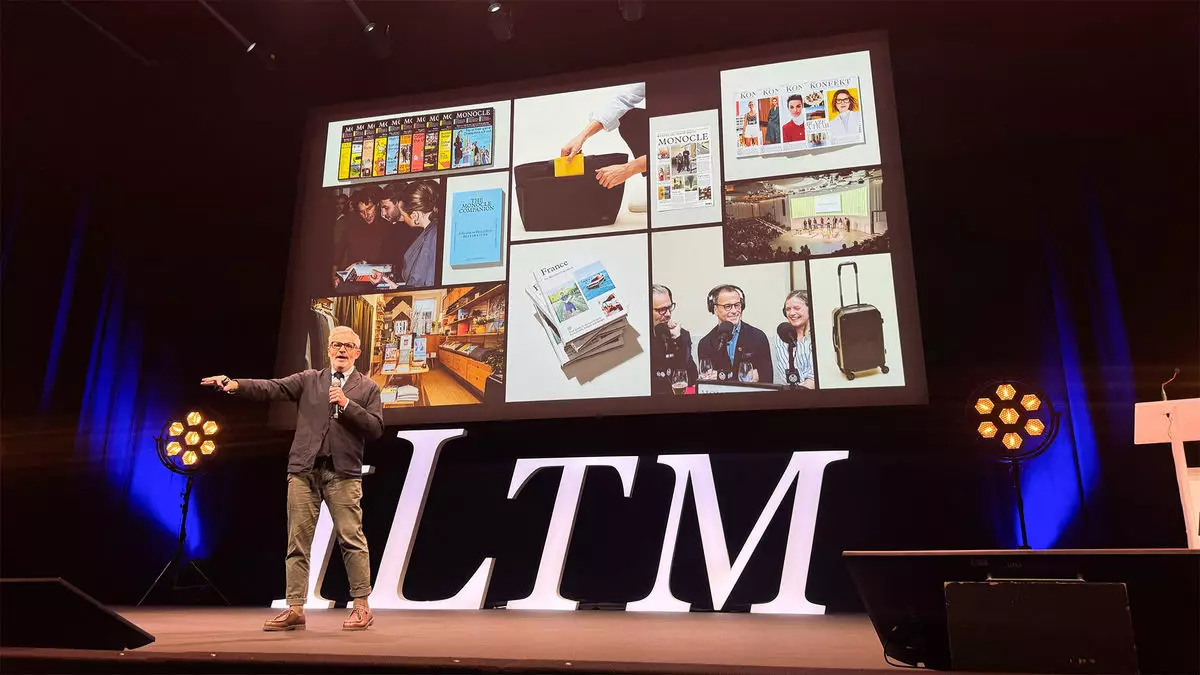As the world of travel continues its swift evolution, particularly in the luxury sector, the voice of guests and industry leaders has never been more crucial. At the International Luxury Travel Market (ILTM) in Cannes, Tyler Brule, the editorial director of Monocle, raised pertinent issues about the state of contemporary hospitality. Having recently traversed a multitude of cities and hotels, Brule dished out a list of grievances aimed at restoring the true essence of luxury. His candid address serves as a reevaluation of the modern guest experience, reminding an industry absorbing post-pandemic norms that guest satisfaction should not be sacrificed on the altar of convenience and minimalism.
One of Brule’s primary frustrations lies with the prevalence of QR codes, implemented widely during the pandemic for menus and service offerings. While the intention was to promote hygiene and efficiency, Brule argued that this digital crutch has stripped away the tactile experience of dining. “We want texture,” he asserted, advocating for tangible, luxurious elements that enhance guest experience, like leather-bound menus over sterile screens. This impatience with digital excess extends beyond menus; it’s a call to return to emotional connections with the ambiance and service that sophisticated travelers crave.
Similarly, Brule lamented the progression toward digital check-ins, which, rather than simplifying the arrival process, often introduces confusion. The potential for language barriers and device issues can morph into unnecessary stress for guests in luxury settings. “How can we get away from the screen in general?” he queried, pressing for a more human-centered approach that fosters direct engagement rather than a transactional exchange.
As hotels increasingly transform their lobbies into multifunctional spaces ideal for work, Brule identified a compelling disconnect. The essence of a luxurious public area should offer serenity rather than serve as an echo chamber for conference calls and YouTube videos. Brule proposed reintroducing private spaces akin to the classic phone booth, reclaiming a sense of elegance in shared environments. Such changes not only cater to the aesthetic desires of guests but also recognize that not everyone is seeking a co-working environment during their stay.
He also underscored the disappointment surrounding the standardization of hotel staff attire. Increasingly indistinguishable from the clientele, hotel employees in designer wear without proper branding chip away at the luxury experience. By emphasizing the need for dedicated uniforms that reflect the hotel’s brand and values, Brule calls for clarity in roles and enhances the professional image of staff, solidifying their position as facilitators of hospitality rather than mere service providers.
Brule didn’t hold back his concerns regarding the over-complicated lighting systems often found in luxury accommodations. In a world where comfort is paramount, he argued that intuitive designs—such as straightforward dimmer switches or clear lighting controls—would significantly enhance the guest experience. This effort to simplify removes the unnecessary layers of complexity that introduce frustration in what should be straightforward moments of relaxation.
Moreover, the trend of early closing times for hotel bars, particularly in Asia, has sparked Brule’s dissatisfaction. He questioned why luxury establishments often curtail vibrant nightlife, advocating for a revival of exuberance that used to define luxury cities. “Not everybody wants to be tucked up at 10 o’clock at night,” he remarked, pinpointing the need for an animated atmosphere where guests can unwind and socialize long after the sun sets.
In an age defined by unprecedented changes in travel preferences and behaviors, Tyler Brule’s insights resonate deeply with the luxury hospitality sector. His pleas for stronger tactile elements, direct service, an engaging atmosphere, and professional consistency serve as a poignant reminder that luxury is not merely about design and convenience—it is about creating memorable experiences through authentic interactions and thoughtful details.
As the hospitality industry aligns itself to embrace the shifting demands of travelers, Brule’s candid remarks provide a guiding light. The essence of luxury lies in the willingness to adapt while maintaining core principles of elegance, comfort, and individualized service. By addressing these concerns and restoring practices that prioritize guest satisfaction, the industry can revitalize itself and keep pace with the desires of contemporary travelers seeking true luxury.

